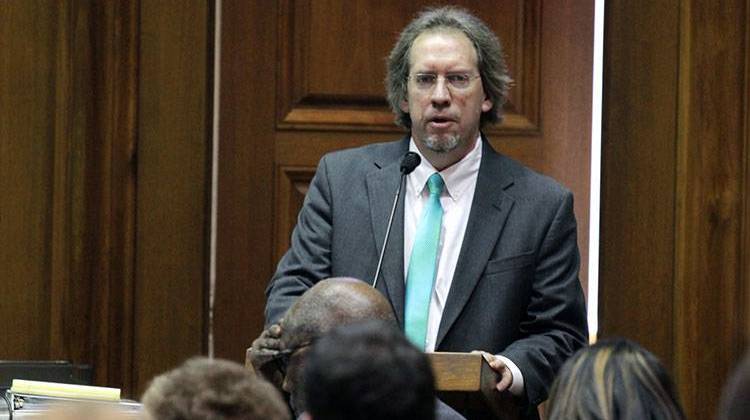A hearing about tobacco funding in the House Public Health Committee Wednesday left many legislators still searching for answers.
The meeting addressed the ongoing legal battle between the state and tobacco companies.
The lawsuit stems from an agreement in 1998 – called the Tobacco Master Settlement – that says tobacco companies have to make payments to Indiana and other states. These payments are meant to help defer the health care costs caused by tobacco products.
The agreement requires Indiana to be “diligent” in making sure that outside companies don’t undercut the companies that are part of the settlement.
But an arbitration panel ruled last fall that the state failed to be diligent, meaning it would lose money from the upcoming settlement payment, in April 2014. The losses stem from actions the state took – or did not take – in 2003.
The state is appealing the decision, while preparing to defend its actions for litigation based on 2004.
Larry Hopkins, chief administer officer at the Indiana General Attorney’s office, addressed the “complex, complicated and very dry issue” of the appeal Indiana is making against the arbitration ruling, which could cause the state to lose millions of dollars that are used to fund health programs.
Kristin Adams of the Indiana State Department of Health, told the committee that $59 million of the department’s budget comes from the money that could be lost from the payments that come from the Tobacco Master Settlement.
These programs include community health centers that 500,000 Hoosiers use, HIV programs, children’s services, cancer education, and general health education. This money also goes towards local departments of health.
“Hoosiers lives are impacted by this,” Adams said. “We are all represented by a local health department so we are all affected.”
Money from federal grants could also be affected because these grants are money matched to what the state spends.
Legislators had many questions, most prominently, why was Indiana ruled to be “not diligent” while other states were. But officials said they couldn’t really answer.
The meeting ended with more questions and confusion as to what this appeal and future litigation means for the state.
The meeting concluded with many legislators unsure about the future of the litigation.
Allie Nash is a reporter for TheStatehouseFile.com, a news website powered by Franklin College journalism students.
 DONATE
DONATE








 Support WFYI. We can't do it without you.
Support WFYI. We can't do it without you.